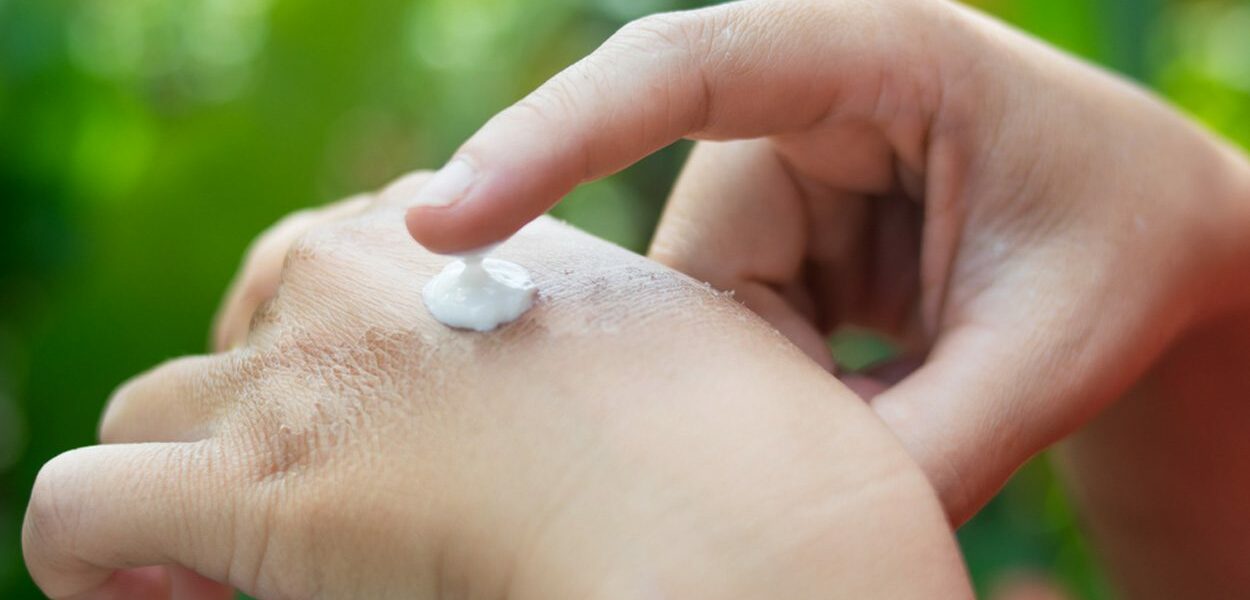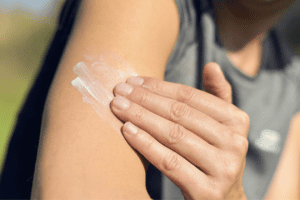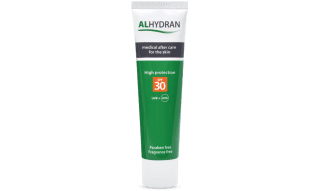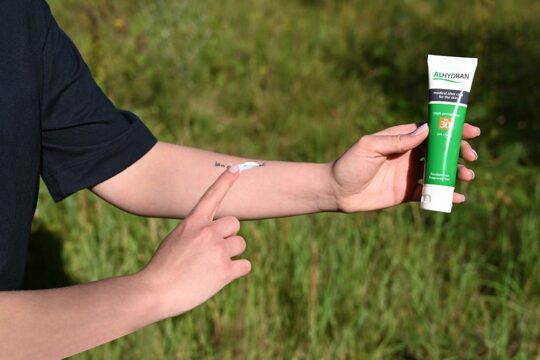When can I expose my scar to the sun?
Never directly expose your scar to sunlight or sunbeds. Make sure your scar is well protected from sunlight when you go outside or sunbathe. This advice applies to all types of scars. Especially recent, large and severe ones, such as those resulting from an accident, surgery or burn wounds.
Why should I not expose my scar to sunlight?
Your recently healed scar cannot yet provide the necessary protection against the effects of ultraviolet radiation. It’s like grabbing a hot pan without an oven glove: there is nothing in between you and the effects from the harmful radiation. As a result:
- Your skin burns more easily
- (Permanent) discolouration of your skin
- An increased risk of skin cancer
The more recent your scar, the more important it is to protect it from ultraviolet radiation.
When can I expose my scar to the sun again?
According to the NHS, scars can take up to 2 years or more to fully mature and fade. During this time, the skin is more sensitive to sunlight and can burn easily. Sun exposure too soon can cause permanent discolouration, slow down healing, and increase the risk of long-term skin damage.
There is no exact point when it becomes “safe” to expose a scar to the sun. The NHS advises keeping scars covered or using a high-factor sunscreen (SPF 30 or above) whenever you are outdoors. This is especially important in the first months after the wound has healed, and for as long as the scar looks red or dark pink.
Your skin type also matters as lighter skin burns more quickly, while darker skin may be prone to pigmentation changes. For this reason, protecting your scar from the sun is important regardless of skin tone (source: NHS).
Learn everything about scars and UV protection in the Free Scar Guide.
How do I protect my scar from the sun?
It is impossible to protect your scar completely from exposure to sunlight. However, there are many things you can do to reduce exposure:
- Cover up: Wear loose-fitting clothing over recent or severe scars. Do this for at least the first month, or while the scar remains red or dark pink.
- Stay in the shade: Avoid direct sunlight whenever possible, especially between 11am and 3pm when the sun is strongest.
- Use sunscreen: Apply a broad-spectrum sunscreen with SPF 30 or higher to the scar. Reapply every two hours.
- Extra protection: Reapply sunscreen after swimming or sweating. Remember that UV rays can still reach your skin in the shade or on cloudy days.
Note: sunscreen or a scar cream with SPF takes 15 to 20 minutes to work, so apply it before you go outdoors.
ALHYDRAN scar cream with SPF 30
Scars need more than just sun protection. They also require long-lasting hydration to stay supple and reduce discomfort. ALHYDRAN SPF 30 combines both: it moisturises scar tissue and protects it from harmful UVA and UVB rays.
ALHYDRAN is a medical scar cream developed for the aftercare of wounds. It is widely used by doctors, nurses, hospitals, and burn centres to hydrate damaged skin and help prevent scar formation.
References
- NHS. (2023, 18 september). Scars. https://www.nhs.uk/conditions/scars/




